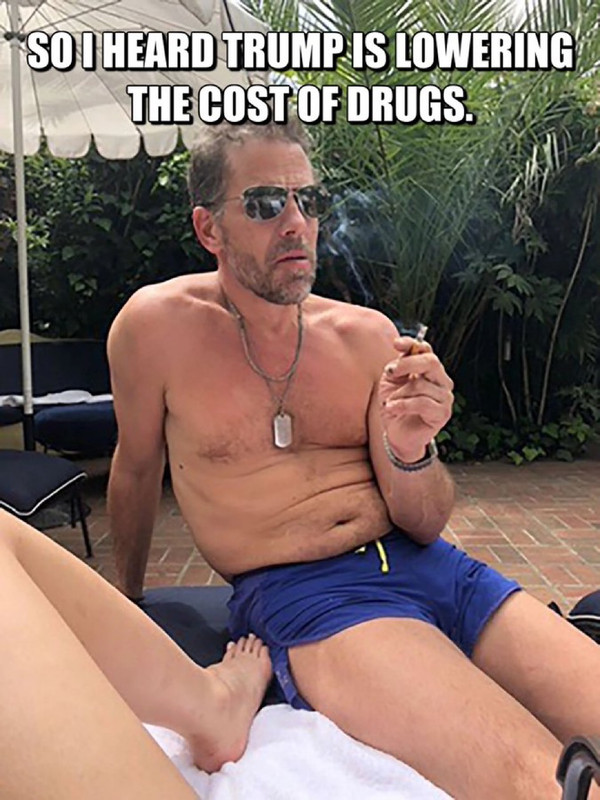
Posted on 05/11/2025 3:35:14 PM PDT by Red Badger
I don't know, but pricing decisions are complex.
Patent laws vary nation to nation. For instance, I've bought prescription drugs from Canadian companies, which drugs are manufactured in India and shipped from Switzerland.
This is because these drugs are still under patent in the U.S., but their foreign patents have expired. So it's much cheaper to have these drugs shipped from India that fulfilled in the U.S.
Also, drugs might be sold on an ability to pay basis (i.e., African nations pay less). It's common for businesses to take consumers' ability to pay into price considerations.
Drugs might be bought in bulk by some nations' national health services. It's common for businesses to offer bulk purchase discounts.
I wonder if he is going to limit liability in the US…as it is in other countries. Lawsuits is one of the reasons why prices are high.
“some kind of benchmark system, using say the top 60 countries by GDP.”
That’s a pretty good idea.
The poorest of the poor nations probably need some help and they shouldn’t be setting the benchmark price that we will pay.
>”So who is making up the difference..?”
Foreign buyers.
I’m sure there’s one on Guam we haven’t heard from yet...................
EVERY price in the medical field is based on the Medicare reimbursement.
People thinking we don’t have socialized medicine don’t understand how prices are set. The government pretty much sets the baseline that 90% of insurance companies follow.
Much of the price reflects not manufacturing costs, but R&D (research & development).
Additionally, the price of successful drugs must include the costs of R&D for the many drugs that failed and never come to market.
Pharma profitability is driven by the 20 year patent life in the US. Companies have an incentive to rush the trials and testing and to charge as much as possible when a new drug is first released because they only have 20 years from the time the patents issue to recoup all the R&D cost (and more). A change to patent law could turn the incentive on it’s head.
That was always my understanding also.
So for Trump’s plan to work (without bankrupting the pharmaceutical industry), patents would need to be protected as long as copyrights— that way, companies would have time to recoupe their investments...
Not really. Not anymore. BP rarely develops anything anymore. Sometimes they do but mostly they sit back watching as small biotech and small pharmaceutical research companies do the development.
It starts usually in a small lab or research university. When they identify a good drug candidate it gets spun into a small company. That company gets private money to expand research. It is an attractive opportunity for some of the wealthiest because if they hit the payout is massive (but these investors usually lay off some of their bets along the way). The small pharma does the pre-clinical studies in animals, and then if safe they enroll a very small group of humans. This is why it can take 10 years it’s a slow and deliberate process (except for Covid lol). Anyway after they do the phase I studies, take a year or more to study the results, then do a phase II study, and usually do at least two of those, often more (or phase IIb) … then after a while of studying those they do phase III studies. It can take a year just to enroll 600 people to a study, to locate study sites that will be rigorous etc. If a drug gets into phase III and shows promise that is when a BP will buy the company. They will often pay many billions for it which is why it is attractive to early investors, they can 100x their money if they let it ride all the way. But the actual cost to run all those trials is about $300M to $500M and requires multiple rounds of investment along the way. But BP will pay often in shares, not always in cash so the BP is paying billions in “money” they print themselves.
It is expensive but the idea that BP invests heavily in R&D hasn’t been true for decades now. A little bit yes, but much of their R&D money is spent researching other people’s developments to see if they want to buy it.
> So either companies will make significantly less profit and/or their employees will make significantly less in wages/salaries. <
There is a third possibility. Companies might drastically cut back on their riskier research and development programs. That would be a disaster for folks fighting serious diseases.
This is one area where Trump has the right idea, but must be very careful.
I trust Trump.
The medication I use is manufactured by Bristol-Myers Squibb and Pfizer. They have plan to assist people, but I don’t qualify.
It’s weird because our neighbor uses the same medication and they are very wealthy, but she gets the discounted manufacturer price.
ever since Trial Lawyers came up with the “contigency- no fee unless you win” garbage, lawsuits and malpractice insurance sky rocketed. And lawyers only do the contingency stuff with medical cases only. Put a stop to that, prices will lower fast.
I’m sure the Congo drug dealers wouldn’t think about doing such a dastardly thing.

“I trust Trump.”
Yes, he’s doing the right thing.Drug costs here are extreme. Pharmaceutical companies have been riding roughshod over Americans, but so have huge hospital systems, HMOs and medical tech companies. Everyone gets a cut at Americans expense. It’s highway robbery. I just hope and pray that Trump has great security because there are many players invested in this horrid rip off.
Disclaimer: Opinions posted on Free Republic are those of the individual posters and do not necessarily represent the opinion of Free Republic or its management. All materials posted herein are protected by copyright law and the exemption for fair use of copyrighted works.